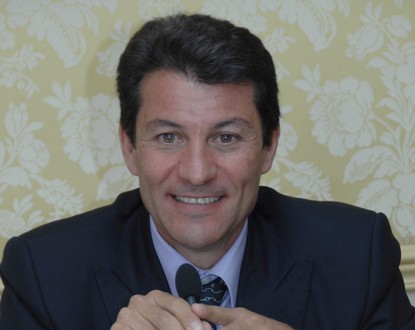During the last Metropolitan Council on Friday, April 13, Councilor Marouane Bouloudhnine (also a municipal councilor delegated to health and youth) caused surprise by twice distancing himself from the majority to which he belongs, and, by extension, from its leader, Christian Estrosi. His motivation? “An autocratic operation. When we sit on the committee, everything is already settled. We are just there to raise our hands. I do not accept this way of operating.”
To continue: “I remain in the majority, but nothing can prevent me from speaking my truth and keeping my freedom of thought. There’s nothing personal, but I am not a yes-man. Above all, I serve the general interest of my city, the metropolis. The question is for me to be in agreement with my conscience.”
And ending by saying: “I won’t stay alone for long.”
But the “man” that Marouane Bouloudhnine does not want to follow like an automaton, obviously does not see it in the same way. And on that very evening, Marouane Bouloudhnine’s actions and words were met with unforgiving consequences (see statement in the box below).
Marouane Bouloudhnine’s dissent is therefore sanctioned with his expulsion (“exclusion” in politically correct terms) from his political group.
But why did Marouane Bouloudhnine, who is certainly not lacking logical analysis skills to our knowledge, take such an initiative that could only have a similar conclusion?
Practicing a liberal profession in medicine, the city and metropolitan councilor (or should we already say, the future ex-councilor?) is not as dependent on the political “system.” Hence, perhaps, the liberties of speech and behavior that not everyone can afford without ignoring the accompanying risks.
Deeply committed to the acknowledgment of the rights and duties of French Muslim citizenship (he is the founder and national president of the Mosaic association), he is also known to be very involved in the political situation of his country of origin, Tunisia, with a marked memory of his activity in support of the Revolution of the Cyclamens here in Nice.
Returning to current affairs, breaking with the “system” that allowed him to enter active political life and be elected is an act of courage. Going against the ruling power is, on the other hand, a bold act for which one must know how to measure the consequences.
There is power because there is a community (family, clan, social, national) and representation of a common interest that requires maintaining order. Moreover, the words of the president of the Nice Ensemble group precisely evoke these principles in an uncompromising language.
We may talk a lot about democracy, which is often mistakenly confused with the right to vote, which is just a simple electoral modality. Democracy (demos-kratos) should not be forgotten, it means the power of the people. But since the origin of political thought, there is, however, an exception to the power of kratos.
Aristotle, who rejected the idealism of his master Plato, thus distinguished three political regimes: democracy, aristocracy, and monarchy. The first two derive from kratos, power. But the third changes the suffix to arkheim, the command. The power of one differs from the collective power. It is not just a matter of etymology.
Marouane Bouloudhnine has made his choice: Audentes fortuna juvat (Fortune favors the bold, as Virgil reminds us in the Aeneid).
Photo credit: www.federationmosaic.com


